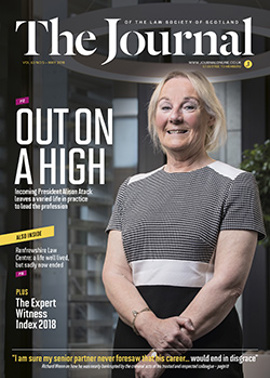The right diagnosis
Expert evidence is important in any case, but is of prime importance in medical negligence since the whole issue of liability will turn on it. The recent decision in EXP v Barker [2017] EWCA Civ 63, where expert evidence was rejected, has highlighted the consequences of getting things wrong.
The role of the expert
The rules around the role of experts were re-emphasised in Kennedy v Cordia [2016] UKSC 6. Only if four conditions are met is an expert’s evidence admissible, so it is critical to pay attention to these:
- the evidence will assist the court in reaching a judgment;
- the expert has the necessary knowledge and experience;
- the expert is impartial in the presentation and assessment of evidence; and
- there is a reliable body of knowledge or experience supporting the expert’s evidence.
Choosing the right expert
Selecting experts in medical negligence cases is far from straightforward. This is because there are numerous different grades of doctor, and different standards of care are expected from each. What may be negligent for a consultant may not be negligent for a junior doctor, and some experts apply the wrong standards in their evidence. Such an opinion would be rejected by the court.
The ideal expert is an academic who teaches the area he or she is asked to comment on, and also still practises in that area.
Finding and instructing the expert
As well as using directories such as this, the first port of call for finding your expert will probably be one of the university teaching hospitals in Scotland. It is also worthwhile approaching the various professional societies of doctors who maintain a list of their members undertaking medico-legal work.
Before instructing the expert, you should check:
- their academic CV for their qualifications/experience;
- whether they provide opinions for both claimants and health authorities/the NHS.
As EXP v Barker showed, it is also important that the expert has no conflicts of interest. For example, when claiming against a specific health authority, you will normally need to find an expert outwith its area.
Once instructing them, you must ensure they receive all the necessary information to prepare their opinion, including the claimant’s full hospital and GP records, a copy of the court pleadings if appropriate, and copies of any expert opinions instructed by the other side. Anything less than full disclosure to the expert may result in their evidence being rejected or viewed as less reliable.
The expert must also understand their role and obligations to the court. While most experts will already know this, it is prudent for your letter of instruction to include the Law Society of Scotland’s code of practice for experts.
Staying within their field of expertise
Experts often go beyond their terms of instruction, into issues they are not properly qualified to comment on. It is up to the instructing solicitor to define the expert’s terms of reference and to police any derogation from these terms.
Again, failure to do so may result in the evidence being rejected or treated as less reliable.
Complex cases
In complex cases involving more than one medical discipline, you will probably need to instruct multiple experts. For example, an HAI (hospital acquired infection) case may need a minimum of three experts:
- an expert in the area of practice for the injury or condition which resulted in the patient being hospitalised in the first place;
- a microbiologist to comment on the causation and onset of the infection; and
- an acute health physician to comment on the management/treatment of the HAI.
To avoid confusion in such cases, it’s important for each expert to stay within their own terms of reference.
A report on medical causation may be included in the expert report, but in some cases you may need a further report from another expert(s).
Consent
When a case features any issues around consent, it is essential that the expert is cognisant with the decision in Montgomery v Lanarkshire Health Board [2015] UKSC 11.
In light of this case, the law on patient consent has fundamentally changed, meaning that where informed consent is necessary, all the relevant treatment options must now be explained to the patient to enable him/her to make an informed decision on treatment. Your expert must be up to speed with this issue.
Navigating these issues and getting the expert evidence right is not just about avoiding that evidence being rejected. It can also protect you against complaints for instructing the wrong expert, make a negotiated settlement more likely, or help you succeed at proof. Doing the legwork here is definitely worthwhile.
In this issue
- Levelling the land: pro bono expenses orders
- PSLs – an evolving role
- Children's panel appeals and client expectations
- APS and asps
- Reading for pleasure
- Opinion: Sarah Prentice
- Book reviews
- Profile: Katie McKenna
- President's column
- Use DPA to cut rejections
- People on the move
- Succession planning: five key steps
- A broader view of practice
- The Death of a Law Centre
- Something rotten
- Taking the strain in difficult executries
- Gender pay: a common cause
- Law, an emotional process
- Brexit: the devolution factor
- The PI Court makes its mark
- The house the Grants built
- New questions over statements
- Gender pay gap reporting: how employers can action change
- Human rights may not plug the gap
- Deferred debt arrangements: a missed opportunity?
- Scottish Solicitors' Discipline Tribunal
- LBTT: beware the crackdown
- Beating the career block
- Public policy highlights
- OPG update: new bond arrangement
- Profile of the Profession runs again
- Q & A corner
- GDPR: help is at hand
- Risk management – that ubiquitous topic
- Ask Ash
- Time to take aim at targets
- AML: don't miss the 26 June deadline
- Expert Witness Index 2018
- The right diagnosis






